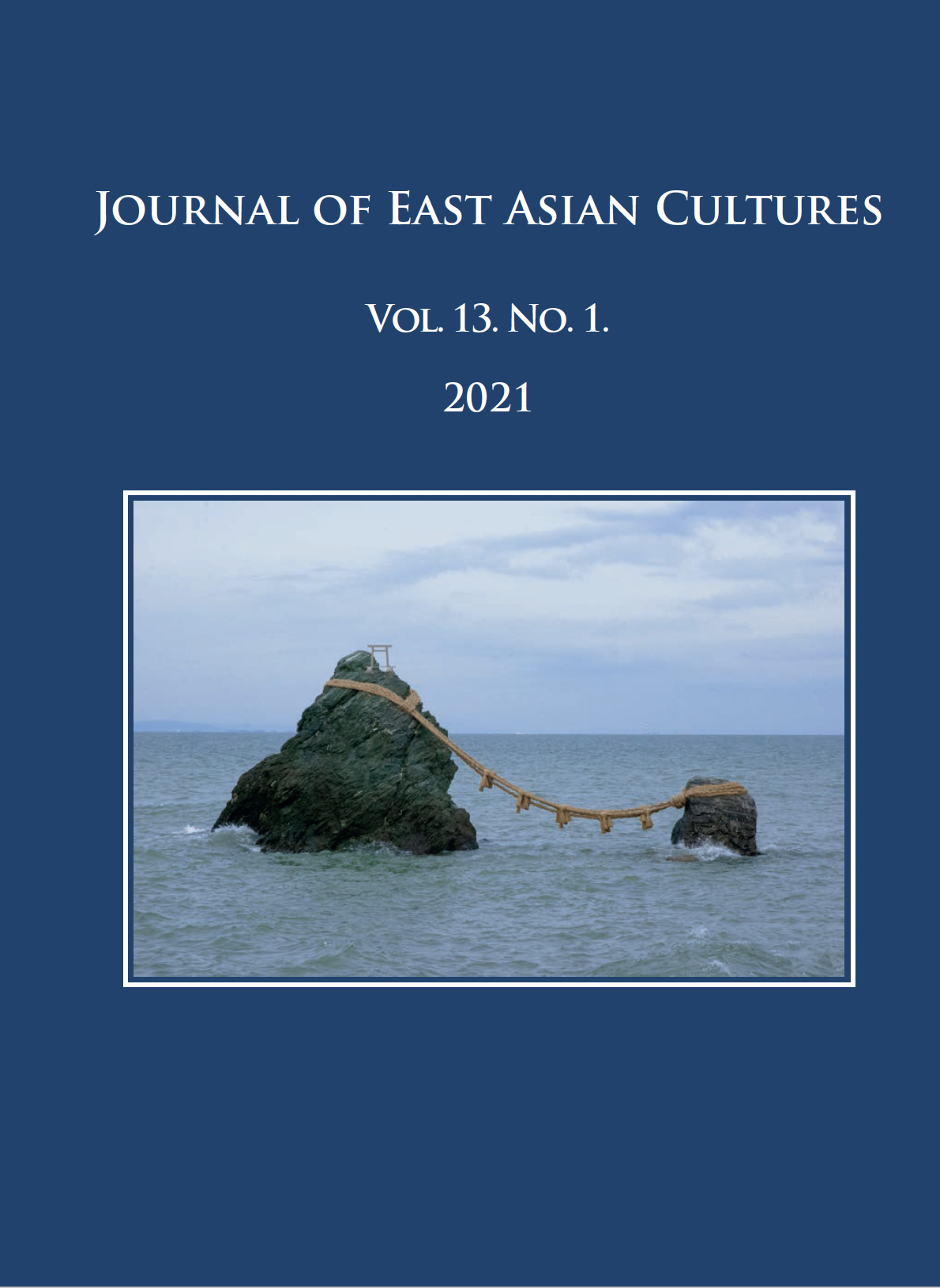Education and ‘Civilization’: Westernisation through Centralisation and the Concept of Women’s Education in Late 19th Century Japan
Published 2021-12-15
Keywords
- Meiji transition,
- Meiji era,
- educational reform,
- Westernisation,
- women's education
- Meiroku Zasshi,
- Meirokusha,
- Mori Arinori ...More
How to Cite
Copyright (c) 2021 the author(s)

This work is licensed under a Creative Commons Attribution-NonCommercial 4.0 International License.
Abstract
Studies on the transformation of the Japanese educational system in the Meiji period usually emphasise the intensity of reforms and their comprehensive character. In the framework of the present study, I will briefly summarise the central aspects of this transformation, then turn to the examination of the tension manifested in Meiji period discourses on education. This is a tension that emerges when one compares the interpretation of the Meiji era as the introduction of ‘enlightened’ Western liberalism with the ideology of centralised reform, far from being as liberal as reported by Meiji period intellectuals themselves. I draw attention to this tension as manifested in the purposes of Meiji educational reforms, then I turn to the analysis of the education of women as a central question in terms of the interpretation of the family in Meiji Japan. The analysis is based on the writings of the leading intellectuals of the time, basically their essays published in the famous journal of the 1870s, Meiroku Zasshi 明六雑誌.
References
- [Fukuzawa Yukichi]. 1899. Fukuōjiden 福翁自伝 [Fukuzawa Yukichi’s Autobiography]. Tōkyō: Jijishinpōsha.
- Fukuzawa Yukichi. [1969] 2012. An Encouragement of Learning. New York: Columbia Uni-versity Press. Translated by David A. Dilworth and Umeyo Hirano, revised translation by David A. Dilworth.
- Meiroku Zasshi. Journal of the Japanese Enlightenment. 1976. Cambridge, Massachusetts: Harvard University Press. Translated with an introduction by William Reynolds Braisted. Assisted by Adachi Yasuchi and Kikuchi Yūji.
- Mitsukuri Shūhei 箕作秋坪. 1874. “Kyōikudan 教育談.” Meiroku Zasshi 明六雑誌 8: 3–5. In English: “On Education.” In: Meiroku Zasshi, 106–108. Translated by W. R. Braisted.
- Mori Arinori. 1871. Life and Resources in America. Prepared under the direction of Mori Arinori. Washington, D.C.
- Mori Arinori. 1873. Education in Japan: A Series of Letters Addressed by Prominent Ameri-cans to Arinori Mori. New York: D. Appleton and Company.
- Mori Arinori 森有禮. 1874a. “Saishōron 妻妾論.” Meiroku Zasshi 明六雑誌 8: 2–3. In Eng-lish: “On Wives and Concubines (Part One).” In: Meiroku Zasshi, 104–105. Translated by W. R. Braisted.
- Mori Arinori 森有禮. 1874b. “Saishōron 3 妻妾論三.” Meiroku Zasshi 明六雑誌 15: 1–2. In English: “On Wives and Concubines (Part Three).” Meiroku Zasshi, 189–191. Translated by W. R. Braisted.
- Nakamura Masanao 中村正直. 1874. “Zenryō naru haha wo tsukuru setsu 善良ナル母ヲ造ル説.” Meiroku Zasshi 明六雑誌 33: 1–3. In English: “Creating Good Mothers.” Meiroku Zasshi, 401–404. Translated by W. R. Braisted.
- Nishi Amane 西周. 1874. “Yōji wo motte kokugo wo shosuru no ron 洋字ヲ以て國語ヲ書スルノ論.” Meiroku Zasshi 明六雑誌 1: 1–10. In English: “Writing Japanese with the Western Alphabet.” Meiroku Zasshi, 3–16. Translated by W. R. Braisted.
- Nishimura Shigeki 西村茂樹. 1874. “Kaika no tabi ni yorite kaimoji wo hassubeki no ron 開化ノ度二因テ改文字ヲ發スヘキノ論.” Meiroku Zasshi 明六雑誌 1: 10–12. In English: “Why Reform of Writing Should Depend on the Level Enlightenment.” Meiroku Zasshi, 16–19. Translated by W. R. Braisted.
- Eisenstadt, Shmuel Noah. 1996. Japanese Civilization: A Comparative View. Chicago – Lon-don: University of Chicago Press.
- Fisher, Jerry K. 1983. “The Meirokusha and the Building of a Strong and Prosperous Nation.” In: Harry Wray – Hilary Conroy (eds.) Japan Examined: Perspectives on Modern Japa-nese History. Honolulu: University of Hawaii Press, 83–89.
- Hane, Mikiso. 1969. “Early Meiji Liberalism. An Assessment.” Monumenta Nipponica 24.4: 353–371. https://doi.org/10.2307/2383878
- Howland, Douglas. 2002. Translating the West: Language and Political Reason in Nineteenth-Century Japan. Honolulu: University of Hawai’i Press. https://doi.org/10.1515/9780824842727
- McVeigh, Brian J. 2004. Nationalisms of Japan: Managing and Mystifying Identity. Lanham – Boulder – New York – Toronto – Oxford: Rowman & Littlefield.
- Miyake, Yoshiko. 1991. “Doubling Expectations: Motherhood and Women’s Factory Work Under State Management in Japan in the 1930s and 1940s.” In: Gail Lee Bernstein (ed.) Recreating Japanese Women, 1600–1945. Berkeley – Los Angeles – London: University of California Press, 267–295.
- Molony, Barbara. 2000. “Women’s rights, Feminism, and Suffragism in Japan, 1870–1925.” Pacific Historical Review 69.4: 639–661. https://doi.org/10.2307/3641228
- Nolte, Sharon H. – Hastings, Sally Ann. 1991. “The Meiji State’s Policy Toward Women, 1890–1910.” In: Gail Lee Bernstein (ed.) Recreating Japanese Women, 1600–1945. Berke-ley – Los Angeles – London: University of California Press, 151–174.
- Papp, Melinda. 2016. Shichigosan: Change and Continuity of a Family Ritual in Contemporary Urban Japan. New York: Palgrave Macmillan.
- Rubinger, Richard. 1988. “Education: From One Room to One System.” In: Marius B. Jansen – Gilbert Rozman (eds.) Japan in Transition from Tokugawa to Meiji. Princeton: Princeton University Press, 195–230. https://doi.org/10.1515/9781400854301.195
- Swale, Alistair. 2000. The Political Thought of Mori Arinori: A Study in Meiji Conservativism. London – New York: Routledge.
- Uno, Kathleen S. 1999. Passages to Modernity. Motherhood, Childhood, and Social Reform in Early Twentieth Century Japan. Honolulu: University of Hawai’i Press. https://doi.org/10.1515/9780824863883
- Wakabayashi, Bob Tadashi. 1984. “Katō Hiroyuki and Confucian Natural Rights, 1861– 1870.” Harvard Journal of Asiatic Studies 44.2: 469–492. https://doi.org/10.2307/2719039
- Yanabu, Akira 柳父章. 2009. Hon’yakugo seiritsu jijō 翻訳語成立事情 [Circumstances of the Formation of Translation Terms]. Tokyo: Iwanami Shoten.

